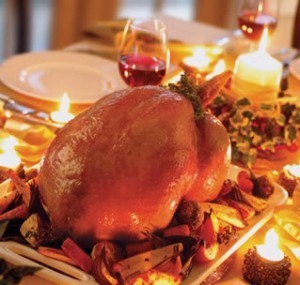Billy Coffey's Blog, page 35
December 6, 2012
Passing on the magic

image courtesy of photobucket.com
It’s looking more and more like this is the year it happens. That I knew it someday would (“Sooner or later” is how I’ve always put it, and I always assumed it would be later) hasn’t dulled the pain. I thought it would be like getting a shot—if you know the needle’s coming, it won’t hurt as much.
Not true.
Yet here I sit, this sixth of December, and I can doubt it no longer:
My kids won’t go to see Santa this year.
There’s been no mention of the mall and the temporary Christmas village that’s set up there. No pre-planning of what cookies to put out on Christmas Eve and how much milk. And the closest my kids have gotten to writing letters to Jolly Old Saint Nick are the two pieces of scrap paper I found on the coffee table this morning, one in the bubbly script of a little girl, the other in the barely legible writing of a little boy. Disheartening, to say the least, even if they were kind enough to list their wants in descending order of importance.
My daughter is ten now, my son eight. I wonder how that happened, and so fast. Just last year they both bought into the whole thing, the reindeer and the elves and the he-sees-you-when-you’re-sleeping. Now, even though they’re both silent on the issue, they know. I know they know. There’s not denying it anymore, at least to them—Santa isn’t real.
Bid deal, you say. But I say it is. I don’t want my kids to grow up. I don’t want them to lose sight of the magic that permeates this world, because it’s there. It’s everywhere, and once upon a time I knew that myself and then grew up and forgot it and they—my children—were the ones to teach me about that magic again. And a very selfish part of me is afraid if my kids forget about that magic, then I might forget about it again, too.
They’re still into the other things. At least I have that. They love the trees and the lights and the carols. They love the secret packages that are hidden and shared only in whispers.
Most of all, my kids are still into the wandering wise man.before—how one of the magi from our nativity somehow manages to get lost each year between the attic and the living room. He wanders the house between Thanksgiving and Christmas Day, appearing in bedrooms and bathrooms and—once—on the front porch. Trying to find Jesus, just like the rest of us. It’s still the first thing my children look for every morning. They need to know where the wise man’s gone to next. Yes, I still have that. I figure if I have that, I’m okay.
He was in the kitchen last night, propped up on the counter between the coffee maker and the sugar. I went to move him after the kids were asleep, meaning to put him in front of the little Linus figurine in the dining room that says THAT’S WHAT CHRISTMAS IS ALL ABOUT. He was gone. Moved not by my hands or the hands of my wife, but (I suspect) ones much smaller.
I guess that little secret’s out, as well.
But you know what? That’s okay. Finding that wise man gone saved me. It taught me something important. Discovering that some of the magic we’ve always believed in isn’t real can be an okay thing. Maybe even necessary. But discovering that you can turn around and make some magic of your own? That’s not only okay and necessary, that’s a blessing.
Now if you’ll excuse me, I have a wise man to find.

December 3, 2012
Looking for Jesus

The thing about living at the foot of a mountain is that it’s often windy. Sometimes it’s little more than a gentle breeze that will tousle your hair. Other times it’s enough to make you pull your ball cap down a little tighter. And then there are the winds that don’t simply blow but rage. Like the ones last Wednesday.
I was outside the next morning surveying the damage, which wasn’t all together bad. The only things out of place were a few of the Christmas decorations—two bows that had found their way into the rose bushes, a strand of lights that had been blown from the tree, and a toppled Nativity scene.
The bows and lights were simple enough, though I had to impale my thumb on a thorn and smack myself in the face with a tree branch in order to set aright what the wind had blown askew. Mary, Joseph, a wise man, and a shepherd had dog piled the holy child to shield him from harm.
I stood the shepherd up first, brushing away a few leaves and a clump of mud. Then the wise man, then Joseph, and finally Mary. Then I stooped down to brush off little Emmanuel.
Halfway into my crouch, I stopped. In a strange act of contortion I didn’t believe was possible, I both furrowed my brow and bulged my eyes at the sight before me. Because there, right there where the swaddled babe was supposed to be, was nothing.
The rusty gears in my head began to lurch and churn, the results of which seemed to be subtle variations of one question—And what’s that mean?
And what’s that mean? The dog pile didn’t work.
And what’s that mean? My Baby Jesus is gone.
And what’s that mean? Uh-oh.
I stood up and looked around. Nothing. Looked under the truck and around the corner of the house and in the neighbor’s yard and by the creek. Nothing.
A chill ran down my spine that could have either been panic or the last remnants of the cold December wind the night before. How could we have Christmas without the Baby Jesus? What now?
I entertained a brief thought that I should call in and take the day off (“Jesus is MISSING!” I would say). But I didn’t. I wasn’t worried. After all, I’d found the real one. Surely I could find a plastic one, too.
Surely. Maybe. Well, hopefully.
I didn’t get much done that day; I was paid more for eight hours of worry and dread than actual work. My children were ignorant of the situation for obvious reasons. A missing Baby Jesus would bring the sort of panic that children display in tears and snot. Which meant I would have to find him before they knew he was missing.
I went home that afternoon and searched the entire neighborhood. I knocked on doors (“Have you found Jesus?” I asked, and received many wonderful answers. And one that was not so wonderful). I made phone calls. I drove, and when that didn’t work I walked. I even resorted to calling out His name—“Jesus?” “JESUS??”
Still? Nothing.
I had given up and begun preparing my failed-father speech to the family when I spotted a hunk of plastic beneath an evergreen tree. I’d be lying if I said there was a golden ray of light shining down upon it, but it sure felt that way. I sprinted over to the tree, pulled back a dangling branch, and lo and behold, there he lay in peaceful plastic slumber.
My Baby Jesus is back where he belongs now, safely tucked just under the living room window with ma and pa watching over him. And also two carefully placed stakes holding him in place.
I just checked on him. Still there. But a thought came to my mind as I peered through the curtains—shouldn’t I be more mindful of where the real Jesus is than my plastic one? Shouldn’t I make sure that He, too, is right beside me? And in those times when I find He isn’t, shouldn’t I go looking for Him with the same sense of purpose and urgency that I did with a simple Christmas decoration?
Yes, I think. Very much so.
Because the winds rage not just outside my window, but inside my heart, too. They howl doubt and blow jealousy. They gust fear. And while those winds can never blow Jesus away from me, they’ve been known upon occasion to blow me away from Him.

November 29, 2012
Christmas wishes

A few days ago, the local newspaper dedicated a few of their pages to children’s letters to Santa. It’s been a tradition with the News-Leader ever since I can remember, and I applaud them for it. Not only are the letters informative and at times very touching, they also bring back a little nostalgia. I was six when my letter to Santa appeared in the newspaper. I knew then I wanted to be a writer when I grew up.
If you look at these letters every year, and I do, you realize some things. First, toys have changed over the years. Footballs and baseball gloves have been replaced by i-Pods and Playstations. Things are a lot more electronic now. Still, there are presents that defy time and reach across generations. I was happy to see that both doll babies and Legos were still in high demand.
But though the toys have changed, the children haven’t. Say what you want about test scores being lower than they were twenty years ago or kids being more lethargic than they once were. Kids are still kids, and always will be. This is a good thing.
And you realize this, too: these letters to Santa could well be prayers to God. They are full of longings and wishes, pleas and hope, all directed to someone they know can help them. And the sorts of things these kids ask for aren’t really all that different than mine.
Things like faith in the midst of doubt. Take Jackson, for instance:
“Are you real, Santa? Or are you a phony? People say you are, some say not. I don’t know if you are, but when I’m older I’m going to find out…I hope your real that’s my belief…But one thing I want to do, to make proof that Santa’s real. So I can keep my belief.”
I’m right there with you, Jackson. “I believe, help my unbelief,” said the man to Jesus. And so say we all.
There is also the nagging sense that I’m not measuring up. “I hope you think I have been good this year,” says Sarah. A sentiment echoed by a lot of other kids in a lot of other letters. Some are more honest: “Sometimes I’m good, but sometimes I’m bad,” wrote Kevin. Aren’t we all? Which is the point, I think. We’re not good enough to deserve all the things we ask, and yet there they are, under the tree every year. Why? Because Santa knows even though we’re not so good sometimes, we’re still worth much. To kids, this sort of thing is called love. To adults, it’s called grace.
Of course, prayers are not all about me. There are plenty of other people who need help, too. They range from the small (“I wish you can help my mom get the tree out of the attic,” writes Megan) to the big (“All I want is my six teeth and my papa to feel better. I want my Meme to get to Maryland fine, and my family together for the holidays”–Jasmine).
And then there are the prayers that are said out of pain (“My daddy back. My daddy leave and we lonely have mommy, me and my dog”–Brittney).
There are also the ones said out of pure love (“I know this is going to be a bad Christmas for some kids. so I want you to give my presents to the kids who won’t be getting anything this year. God bless everyone!”–ZayVon).
I’m not sure if all those letters were answered the way the kids wanted them. That’s okay. Not all of our prayers get answered that way, either. But even if they weren’t, I feel pretty confident that all those kids will be writing letters again next year. Santa always come through in the end.
God, too.

November 26, 2012
The heart of the tree
 I’m a linear guy when it comes to decorating for Christmas. That means working from the outside in. Lights on the trees, garland on the porch banisters, wreathes on the windows, spotlights in the yard. When all that is done and right—and it always has to be right—we’ll move to the inside: nativities, candles, lights.
I’m a linear guy when it comes to decorating for Christmas. That means working from the outside in. Lights on the trees, garland on the porch banisters, wreathes on the windows, spotlights in the yard. When all that is done and right—and it always has to be right—we’ll move to the inside: nativities, candles, lights.
The tree comes last. Always has, too, even when I was a child. I think that’s as it should be. The manger is the soul of Christmas and the reason we celebrate our blessed assurance, but the tree is its heart. I firmly believe that. It is in most instances placed in the room in which we gather and spend our time together, whether living room or family room. We wrap them with lights that by some magic cast a glow upon us that seems warmer than any sun and more comfortable than any blanket. We place stars or angels at the apex to remind us of what shone in that bright sky so many years ago as heralds of the Good News to all men.
But if the heart of Christmas is the tree, the heart of the tree is its ornaments.
It was only recently I realized that, and I have my children to thank for it. The tree had been set and straightened in its stand, the lights had been strung, and the star had been put up. Both kids were in the throes of the seasonal hyperactivity that seems to pour out of them once the Xs on the calendar creep toward December. But the constant torrent of that excitement began to ebb and flow once the box of ornaments was opened.
They quieted.
It was not the sort of silence that signifies boredom or joyless work. It was instead an almost holy stillness, the sort of which I would imagine accompanies some great discovery long buried by dirt and time.
They didn’t reach for the shiny baubles purchased on sale at Target, not even the Star Wars or Winnie the Pooh ornaments from the Hallmark store. What my kids reached for were the treasures wrapped in paper towels and tissues that had over the last eleven months slipped through the cracks to the bottom of the box. The ones that cost nothing but time and effort. The ones they made themselves.
Chances are you have the same sort of thing on your own trees. The house made out of a school milk carton. The reindeer made out of clothespins. A bell made out of a Styrofoam cup.
They sorted these ornaments into their own separate pile. Only after they were secure (and only after repeated pleas by both of them for me not to sit on them) did they reach for the fancier accessories. They tied bows and plugged in the mechanical ornaments. My daughter hung the colored bulbs by rainbow order. It was all lively and punctuated by jokes and cheer—the flow. But every few trips to the tree would be to hang one of their own ornaments onto the tree, ones made in kindergarten or pre-school or even last year. Those trips would be made in that awed silence–the ebb.
I didn’t ask my children why they acted such. I wasn’t sure if they knew, and I wasn’t about to spoil their unknowing. They’ll learn that soon enough.
In a few short years what my children see as the magic of Christmas will yield to a new understanding. They will know that Santa isn’t real, but that their memories are. They can see them each year as they hang them on the tree and all their outward talk turns to talk directed inward. They’ll remember where they were when they made them, whom they were with, what they were feeling. They will glimmer in the sun during the day and in the bright lights during the evening. They will look and they will remember.
Maybe that’s where all the warmth of a Christmas tree comes from. Not from the lights, but the thoughts.
That’s what I think now. Christmas is a time where memories are made tangible and we glimpse the thin line of life that connects our yesterdays and tomorrows, all wrapped up in milk cartons and pipe cleaners.
They’re fragile, like us.
Precious, like us.

November 19, 2012
My sixteenth Thanksgiving

image courtesy of photobucket.com
My sixteenth Thanksgiving meal was the first one eaten without my family present. Also my last. Because I learned my lesson.
My girlfriend’s family was planning the mother of all Thanksgiving feasts. Everything was to be meticulously planned and prepared by the family matriarch, a hard-looking woman who chain smoked Marlboro 100s but did so with a whiff of proper daintiness that harkened back to her ancient Virginian roots.
Meals would be served in four courses and include fancy table settings, crystal glasses, and food I couldn’t pronounce. Relatives far and wide were more summoned than invited. A new dining room table was purchased just to accommodate the thirty or so people. “It’s going to be quite the soiree,” my girlfriend said. “Can you come?”
Yes.
For two reasons. One was that I was her boyfriend and so had boyfriend obligations. Second was that her family was what I referred to as Important People. Successful and powerful and rich. They drove BMWs and wore J. Crew and ruminated over the stock market. They were, in essence, both everything my own family was not and everything I wanted to become.
I had no reservations about going because I wasn’t likely to miss anything of real substance at home. They Coffey version of Thanksgiving celebration involved little more than a turkey, some stuffing, and my own relatives gathered around a simple pine table. People who drove trucks and wore Wal-Mart and talked about hunting. Not that there was anything wrong with that. There wasn’t. I just thought that maybe it was time I broadened my horizons and saw how the other half lived.
So I went. And my girlfriend was right, it was quite the swanky affair. Fancy people arriving in fancy cars to eat fancy food. You would think all of that would translate into a fancy time. But then again, some things get lost in translation.
For one, I soon learned that all the wealth and power my girlfriend’s family had accumulated resulted in some bad feelings. Some were jealous of others, others were angry at some, and it seemed all of them had something against somebody. The meal, tastefully prepared, was given without prayer. And the table that was bought specifically to bring so many people together didn’t. Squabbles broke out. Arrogance was displayed. Pettiness was front and center. And before long my girlfriend’s mother, the properly dainty matriarch, jumped up from her seat and ran like a mad woman for her smokes, screaming through her tears that she “should have never done this!”
I sat there, lost in wonder at the sight. Here were people who had worked hard and labored much to enjoy the fruits of success, only to find that they had lost one another and a bit of perspective in the process. Far from being one of the family, I had been relegated to mere spectator. Which was fine with me. Those people were nuts.
My girlfriend had become accustomed to the shouts and accusations. She leaned over just as her mother slammed the front door and said, “Life’s a beach, huh?”
She said that often. And it seemed to me as though her family had lived up to that philosophy. They had all staked their claim on the shoreline and built their castles, marveled and worshipped them even, and then forgot that it was all sand in the end.
The good life didn’t look so good to me. If that was having it all, then I’d rather keep my nothing. So I did the only thing I could. I left. Quietly and politely.
I went back home, back to the plain food served on the plain kitchen table to my plain relatives. Back to a place where the bonds of God and family held true not merely for one day a year, but all of them. And you know, that wasn’t just the best Thanksgiving meal I’d ever had, it was also the best Thanksgiving period.
Because that was when I learned I shouldn’t just be thankful for what I had, but for what I didn’t.

November 15, 2012
The Gospel of Hank

image courtesy of photobucket.com
Saturday afternoon, early November. Cold an dank. Mood? Questionable. Thirst? Very. So I pulled off the road along US Route 11 and into the parking lot of a no-name service station, the sort of which was what you’d expect for rural Virginia—dirty windows, questionable service, and people who made putting up with both well worth the effort.
People like Hank.
The man behind the cash register greeted me with a “Howdy” as I walked through the doors, each of which had been propped open by two twelve-packs of Budweiser. I nodded back and made my way toward the drink cooler in the rear of the store.
“BETTER ONES UP HERE,” shouted a voice.
I turned, and there beneath the mounted head of a deer sat an old man. His red suspenders clashed with his brown pants and blue shirt. He twisted in a vinyl chair and tapped his cane on the bin beside him.
“ICE MAKES ‘EM COLDER THAN THAT GOL’-DARNED ‘FRIDGERATOR CAN,” he shouted again.
“You got a point there,” I told him.
“HUH?”
“YOU GOT A POINT THERE.”
“AH,” he said and smiled.
I grabbed a Coke from the bin and swabbed the condensation with my shirt, nodding once more. The old man wheezed and coughed a hunk of phlegm into his handkerchief.
I took a sip and paced the store, taking stock of the sardines and canned vegetables, both of which had expired three months prior.
A mother and her brood of three came in just then, all of whom got their own howdy from the cashier. The kids made a bee line for the magazine rack while mom paced the aisles in search of an elusive Something.
“Do you sell salt?” she said to the cashier.
“LAST AISLE, YOUNG LADY,” the old man said, pointing his cane to the opposite side of the store. She smiled a thank you, and he smiled a you’re welcome.
He wasn’t done, either. In the next fifteen minutes, the old man had noticed the keys a customer had dropped, reminded another that his headlights were on, and squished a rather nasty cockroach.
“You have a pretty good helper over there,” I told the cashier as I paid.
He smiled and said, “Yeah, Hank’s been around forever. Used to own the place until he started getting sick.”
As if on cue, Hank began hacking again.
“So he still comes around?” I asked.
“Yep,” he said as he offered my change. “He’s deaf, weak, and the doc told him last month all those non-filter Camels
have eaten his lungs up. But he still shows up every day wanting to help out and do somethin’.”
I shoved the change into my pocket and looked at Hank, who had made himself busy by using his cane to scrap half of the dead cockroach from the bottom of his boot.
I had to smile at the sight. Though I knew nothing of the man, it seemed so utterly Hank.
That a simple man in a no-name gas station on a fall afternoon could teach me something was a little unexpected, but then again there are lessons to be learned in most anything. Especially in the sight of an old man clinging to what little life he had left.
Strip away theology’s pretense and philosophy’s theories and we are faced with this one basic question when it comes to the conduct of our lives—what does God expect from us each day?
Over the years I had come up with many possible answers—to love Him and others, to do our best to leave the day a little better than we’ve found it, and so on. But after watching Hank, I knew the real answer to that question.
What does God expect from us each day? Simple.
To show up.
We can give God our hearts and our desires, give Him our minds and our talents, but if we don’t give Him our time, those things just don’t matter.
Poor Hank could have spent his last remaining days at home watching HGTV, but he didn’t. He still showed up in that little gas station every day willing to do whatever he could to help despite his weaknesses and infirmities. I think we should do the same.
Because no matter how wounded we are, no matter how broken and beaten, we can always do something to help. We can always make a difference.

November 12, 2012
Better days

image courtesy of photobucket.com
Yesterday was no big deal. Sundays aren’t really supposed to be. It was a sleep in and go to church, come home and eat, take a nap during the football game kind of day. The best day.
And it was Veteran’s Day. Big deal around here. There are quite a few veterans in this small town and the mountains and hollers around it, and yesterday that stood up in our churches and accepted our thanks and ate half price at our restaurants. This is a good thing. I was too young to remember the end of the Vietnam War, but I know the stories of what many of our soldiers faced when they came home. It’s nice that whatever our politics may be, this country can unite around those who’ve fought and died just so we can have the right to disagree.
One more thing about yesterday:
My wife and I fully intend to take care of Christmas early this year. No last minute scrambling for gifts, no tardiness on Christmas cards. Get it done and done quick, then just sit back and enjoy. That’s our plan. So yesterday we told the kids it’s time for wish lists.
Reading over those (Legos and a 3DS for him, books and more books for her) made me think of something else that tied in a roundabout way to Veterans. It happened on the Western Front around Christmas in 1914, in the midst of World War I. And though no American forces were involved, I still want to share it. It goes to a larger story, I think. One about all of us.
In that week leading up to Christmas, fighting in the trenches between German and British soldiers slackened. Enough, in fact, that soldiers from both countries would even walk across no-man’s land bearing gifts. Season’s greetings were exchanged. And in those brief but welcomed moments between the gunfire, soldiers often heard the singing of carols. It all culminated on the Christmas Eve and Christmas Day almost a hundred years ago, when both sides decided on their own that war simply wasn’t right. They joined together for those two those days not as enemies, but as human beings. There were joint ceremonies to bury the dead. There was even a friendly soccer match.
The war went on after that, of course. There were attempts the following year for another Christmas truce, but it was not as widespread. The generals—ones who strategized and ordered but rarely fought and bled—prohibited it. Poison gas began to be used. The levels of fighting and dying greatly increased. Each side began to view the other as less than human.
I thought about that a lot on Sunday, sitting there in my comfortable living room with my family around me and the sun shining outside.
I am thankful for my country. I am thankful for those who’ve fought and died for me. And yet even as I give thanks I also mourn for the families left shattered, both by those who never returned from war, and those who went to war thinking they’d never return only to come home and not survive the peace they deserved.
I understand this is a mean world. I know there are people and nations who want nothing more than to see the end of this country, and I thank God daily that I can work and rest and play thanks to the men and women who wear our uniform and bear our flag.
I am not a pacifist. Yet I wish for peace, even as I know that peace will never come.
But I wonder what would happen if all the men in all the wars that rage upon this earth would one day decide war simply wasn’t right. I wonder what would happen if we saw everyone as human. People who struggle and hurt and dream and love just as we do.

November 8, 2012
The heart of this land
 I don’t know how you spent the day after the election. Chances are you were either celebrating or in mourning, depending upon whether you call yourself blue or red. In either case, this one seemed more emotional than usual, didn’t it? We’ve either gained so much or lost so much, brightened our future or darkened it. There seems to be little middle ground, and there are a great many among us who believe our country close to some fundamental unraveling by the zealots on the right or the liberals on the left. Strange as it may be, this seems to be the one thing we can all agree on.
I don’t know how you spent the day after the election. Chances are you were either celebrating or in mourning, depending upon whether you call yourself blue or red. In either case, this one seemed more emotional than usual, didn’t it? We’ve either gained so much or lost so much, brightened our future or darkened it. There seems to be little middle ground, and there are a great many among us who believe our country close to some fundamental unraveling by the zealots on the right or the liberals on the left. Strange as it may be, this seems to be the one thing we can all agree on.
Me, I neither cheered nor mourned. I instead spent the day after the election at a funeral for my grandmother in-law. She closed her eyes to one world and opened them to another last Sunday at the age of 95.
We gathered along the mountain slopes at a small Baptist church with a graveyard pocked by tiny Confederate flags that marked the resting places of the Civil War’s fallen.
A hundred of us, more or less, half of which were family and the other half friends, all of us united in celebrating that one life. One life that you may believe was wholly insignificant, given the fact that she spent most of it on a 200-acre farm at the base of the mountain.
She was a quiet soul, my grandmother in-law. Born at the beginning of World War I, married during the Great Depression and married still sixty-four years later, when her husband passed. In between she’d given birth to ten children, was a grandmother to more than I can count, great-grandmother to my own children, and great-great grandmother to more. At her service, five generations were in attendance.
Think about that.
Her life was built upon three guiding principles: faith, family, and farm. She loved her God, loved her husband and children, and loved the tiny plot of Earth she’d been given. Of all the accolades I heard in her name yesterday, my favorite were her hands. They weren’t smoothed or polished or wrinkle-free, but calloused and scarred from years of labor, most of which was spent near the woodstove upon which she cooked her family’s meals. That was her thing. Neither electricity or gas would do when it came to supper. Food tastes better when it’s cooked over a fire. I know this for a fact.
The picture you see to the right is the view from her graveside. My faith and hers says she is in a far better place just this moment, but I expect there is also no small measure of comfort in knowing her earthly body rests in view of the mountains by her farm. The very ones she would watch from the porch swing on all those calm, silent days.
I share her with you because sometimes I listen to the buzzing too much. I watch the pundits and read the columnists and hear their screaming, telling me all is lost and everything has changed and we are all heading toward an end from which we cannot turn away.
Hear me plain: Don’t listen to them.
Because the heart of this country does not beat in Washington, DC, nor does its soul lie in a seat of power, nor does its destiny lie in which party occupies which section of government.
No, those things all lie with people like my grandmother in-law, people like you and me, people who get up and go to work and love their tiny plot of Earth and whose hands are rough and hardened by loving and giving.

November 5, 2012
Thoughts on the election

image courtesy of photobucket.com
A few rambling thoughts on the upcoming election:
I’m sure I’ll be just as happy as you to put this election behind us. I’m weary of it all. They (“they” being those unfortunate enough to make politics their profession) say Virginia is a battleground state. I think that’s code for getting a box full of junk mail and half a dozen vote-for-me phone calls every day.
But it feels different this time, doesn’t it? If I’ve counted right, this makes the fifth presidential election in which I’ll take part. All of them were important, of course. This one seems more so. I’ve spoken with a lot of people from a lot of different backgrounds of late, but all agree that there is a sense of things coming undone. Of unraveling. It’s scary, they tell me. I agree.
I also can’t remember an election so divisive. I’ve seen people on Twitter and Facebook vow violence if a certain candidate wins or loses. Read stories of voter fraud and vandalism. It’s as though we’re all in high school again, like the older we get, the younger we act.
Lately, this has all been about women. Women, they (there’s that word again) say, will decide this election. And since it’s become all about women, it’s also become all about abortion. Call me ignorant, but I don’t really understand that. Aren’t women just as worried as men about where they’ll find work or whether they’re going to put gas in the car or groceries in the cabinet (because nowadays, it’s tough to do both)?
Speaking of which: There have been some otherwise fairly intelligent men saying some very unintelligent things about that subject lately, haven’t there? All pounced upon and analyzed and ridiculed. I would imagine it’s tough for a victim of rape to hear that the child she carries was God’s will (and do you think it is God’s will? That question’s been bouncing around in my mind of late). I think I’d like to hear the story of a rape victim who carried her child to term, loved that baby, watched it grow. I’d like to hear that child say he or she is thankful to be alive. Because certainly there are some, yes?
Let’s get this out of the way—there is not a politician in Washington who speaks for “the common man.” I don’t think any of those people understand what any of us have to go through.
I overheard a student say this the other day: “We gotta do all we can to get Obama re-elected. I gotta have my money.” I wish I would’ve asked what she meant by that. I didn’t. Partly because that’s the sort of conversation I really don’t like to have. Mostly because I was afraid of her answer. Either way, it’s sad that someone her age would think the only possible way she will ever get by is if the government pitches in to help her.
A house across town sports a Don’t Tread on Me flag, three Romney signs, and an empty chair in the front yard (Clint Eastwood style). It’s a beautiful Cape Cod, a very friendly elderly couple. Both of whom are transplants from up North. Both of whom are black. Those Tea Party people, they’re not all racist rednecks.
Just a few more days of all of this, then it’ll be over. Hopefully.

November 1, 2012
After the storm

image courtesy of Telegraph, UK
Now comes the hard part. At least, that’s how I see it from where I sit. Granted, where I sit is a warm home with a fire blazing. We have power, we have food, we have gas in the truck. Yes, we’re fortunate. Unlike the five million or so others who still have no power.
We all knew Sandy was coming, and I believe we’re all the better for it. My grandparents once said there were no extended weather forecasts in their day. Meteorology counted for little more than a telegraph from the next town over, or that old adage about red sky in the morning, sailor take warning. Storms back then were worse, they told me, because you didn’t really know what was coming. I think that’s true. Nowadays, at least we can set ourselves before the punch is thrown at our jaw.
Probably like you, I watched it all from the comfort of my living room. Listened as the weathermen and weatherwomen spoke of nothing like this ever happening before and how whole stretches of land would be swallowed and how many things would never be the same. And just as in every instance of oncoming doom, there was a curios sort of excitement mixed with fascination that made some do pretty stupid things. And when Sandy finally came she came just as it had been predicted, washing away and blowing away and prompting us to remember that we really aren’t the ones in charge at all, that there are bigger monsters than the ones who hide under our beds, ones more real.
And when it blew and poured we all spoke of the devastation and the fear and the utter sadness, and just after there came the stories of those who saved lives and property out of sheer heroism—the first responders, the national guardsmen, the ordinary people who were made great by extraordinary circumstances. If there is a silver lining in times such as these, I think it is the reminder that there resides in us better people than what we normally are.
Here in the mountains there was rain and wind and snow but little else. For that, we are all thankful. But my thoughts turn to my Yankee neighbors. Because as I said, now comes the hard part.
They’ve taken the punch, you see. Taken it square. And that sense of determination and the will to pick up and move on is kindling. Such a sentiment is unique to humanity and speaks of the holiness that dwells in us—we will not be beaten. We will rise again. We will be better than we were. It’s a desire that can carry us through horrible times and build bridges between ourselves and others were only chasms once were. Few things unite us more than disaster. I suppose that could be seen as both a supreme blessing and a great sadness.
The storm may be over—broken up over western New York, perhaps, or tossed back out to sea to be swallowed by the Atlantic. But even now there are darker clouds and colder winds growing. I’ve read that food is growing scarce and gasoline scarcer. Power to many places won’t be back online for a week or more. And November in New England is more akin to January most everywhere else.
In that regard I suppose the storms we face in our lives are no different than the storms we face in our hearts. In the beginning we endure them through adrenaline and determination. In the aftermath, we endure them through faith and work. And though I would never answer for you, I will say from my own experience that the after is usually worse than the during.
That is why my prayers will be with them even more now.




